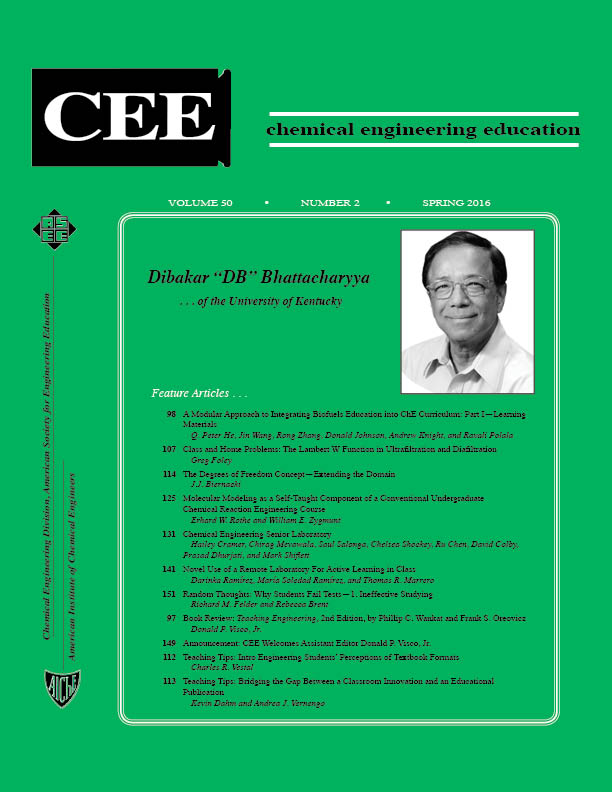The Degrees of Freedom Concept – Extending the Domain
Abstract
The degrees of freedom (DOF) concept is a powerful tool that has been taught since at least the '70s in undergraduate curriculum, typically introduced in the context of a first course on material and energy balances. The concept, however, has not been widely applied beyond the material balance domain and in general is not taught as a unified approach to problem solving across the curriculum. This, mainly because the generalized statement for solvability of an equation set has been reduced to specialized forms which either work only for macroscopic flow problems, or closed systems at thermodynamic phase equilibrium (The Gibbs Phase Rule). Furthermore, such specialized forms, are in general, not derivable, one from the other. To alleviate these limitations, a formalism is proposed that unifies the macroscopic approaches with the Gibbs Phase Rule and extends the domain to include a wide range of closed and dynamic systems. Student feedback regarding the use of this extended formalism is also provided as an indicator of pedagogical effectiveness.


